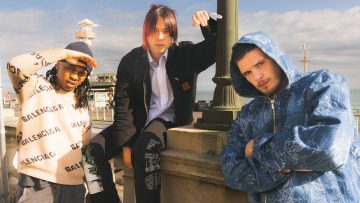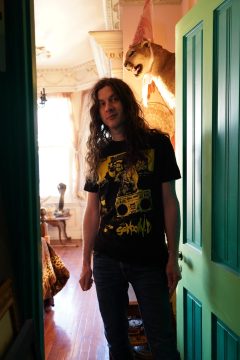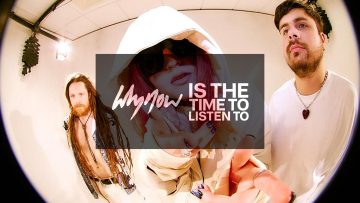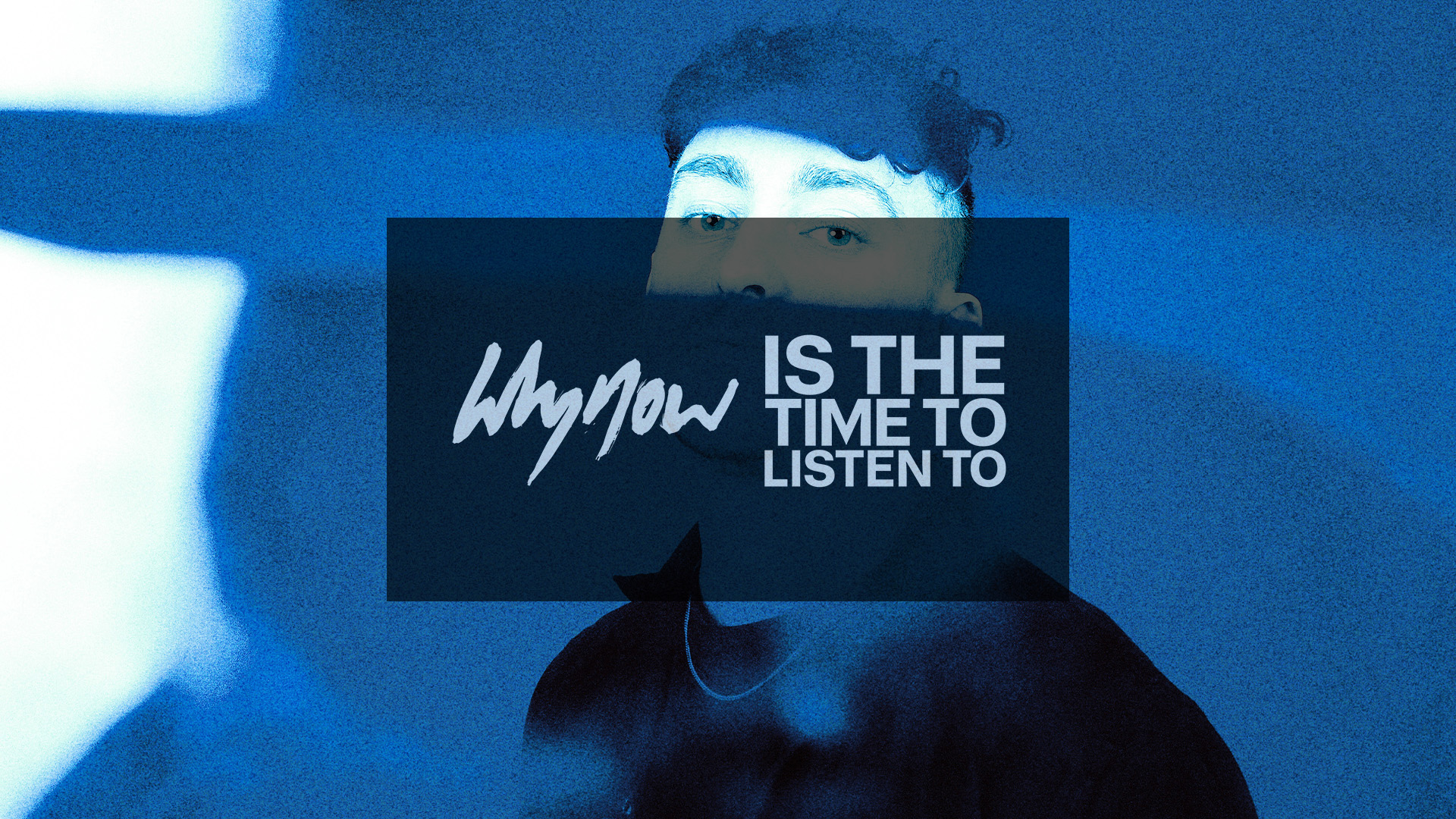
Balancing a job with any pastime can be tricky, but when that job is being a teacher. That hobby is making music which has seen massive support from BBC 6 Music and festival appearances. Things can mount up pretty quickly.
Thankfully, Antony Szmierek is a sound bloke whose music speaks to relatable aspects of life; in this way, his day job informs his music-making, which is lyrically rooted in the everyday and has been honed from years of writing poetry.
With his debut EP, Poems To Dance To, out today, we speak to Antony for the next instalment of our series on rising artists increasingly demanding people’s attention.
Antony, how are you doing?
I’m good, thank you, been busy. I still work six days a week, still teaching. I’m not in a mainstream school, I was for years, but I’m working with kids with special educational needs, and working with vulnerable children as well, so it’s not stuff that’s easy to leave at the door. With the music, all of the serious stuff’s started now; it’s gone from being a hobby to being like, ‘Oh, I need to ring my lawyer’.
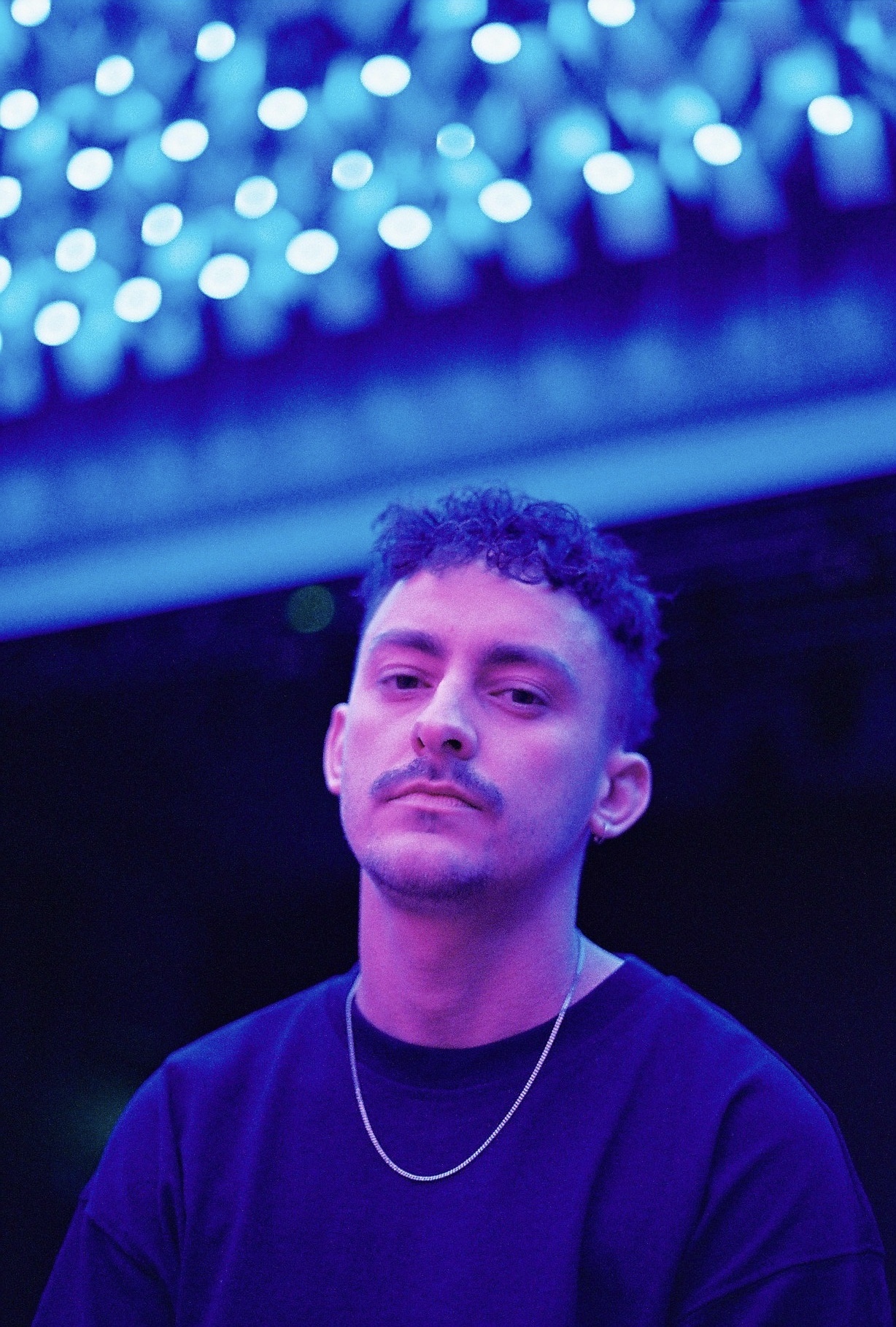
How does it feel now things are taking off with the music: overwhelming, exciting?
A bit of everything. I’d be lying to say that it felt real, to be honest. It’s been relatively quick. I’ve been writing poetry and spoken word for years, so I didn’t expect it to take off. I think it’ll feel a bit more real after the summer, but my life hasn’t changed. I’m still in the same flat, and I’m still skint.
Well, as you said, you’re working six days a week. How are you finding the balance between your job teaching and music?
I’m lucky the people I work for are super understanding, but fingers crossed, [music] is the path, and this is the way, and I get to help people differently and share the music and entertain. [Working as a teacher] keeps me grounded because the kids don’t give a shit how many YouTube views I get.
You’ve been writing poetry for years, as you say, and you’ve written novels. How, in your own words, did you jump to making music?
It’s always been my first love: watching bands and watching artists, that’s what I do to relax. A few gigs a week is standard, and Manchester’s great. It’s the thing that calms me down when I’m not on my phone. It’s always been there. I just never did anything with it. I thought I’d missed the boat of being in a band or anything. So I did things accessible to me; I wanted to write novels and long-form stuff, and my writing just got shorter: novels, short stories, then poems.
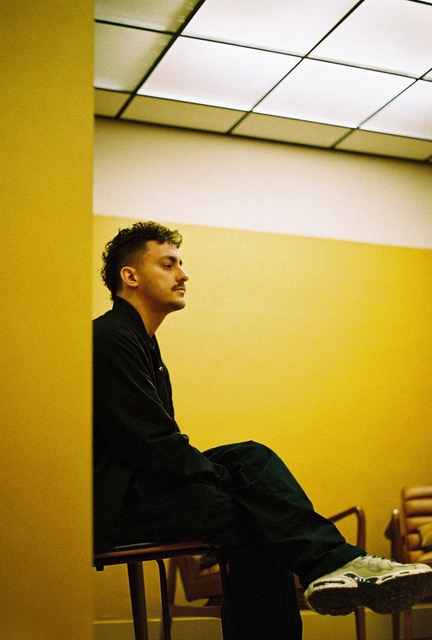
You were trying to synthesise meaning down further and further…
I think so. It’s funny; I had a conversation with myself, asking, ‘What do I want people to take from my writing?’ And it was little soundbites or quotes in a one-liner. With everyone’s attention spans being so small, even my own, I think it was just bringing it all together and making it accessible and digestible.
Finding my own sound was difficult because I always wanted to be in an indie band; I like singing, showing off, and melodies. I still try and do a bit of that: [my track] ‘Rock and a Calm Place’ does that. I play with a band live, and it feels like a band: electric guitar, bass, keys, but no drum kit.
I’m sure you’ve heard the nickname floating around for you: ‘The Manc Mike Skinner’. Those names are placed upon artists, but who are your inspirations?
Yeah, for sure, [Mike Skinner] is 100 per cent. It wasn’t a conscious choice to make music like that. That compliment and comparison are amazing; it’s a wild one, and I love it. I think my influences come from two directions: indie-kid roots and being bang into like Arctic Monkeys (I was at school when I Bet That [You Look Good On The Dancefloor] came out). Then I went to Uni and was dead into introspective lyrics, like Radiohead’s.
But then I was also on the school bus with my little mp3 player, banging to Kano when he was first out, and I and my mates were into garage and grime. So there was that dichotomy. More recently, I think Little Simz is just the best rapper; people say she’s the “best female rapper”, but no, I think she’s the best rapper.
You started making music on Ableton, which you had free for 60 days. Did that provide a bit of a deadline that motivated you to make music?
Necessity is the mother of invention. I’ll be honest; I’m not someone who challenges myself all the time. But I just felt like that was what I wanted to do. Lockdown was tough, and that’s when it crystallised; I was recording things in my wardrobe and learned Ableton quite quickly. It was just demos. You couldn’t release any of it. The quality and the mix were quite shite, but the songwriting was there.
From there, things have picked up for you: Lauren Laverne called your track ‘The Hitchhiker’s Guide to the Fallacy’ the best thing she’d heard all year last year. Does it get better than that?
Yeah, that was hard to fathom. Lauren’s been so great, I’ve spoken to her in voice notes, and she follows me and genuinely backs what I do, which is incredible. Growing up as a music fan and watching Glastonbury every year, it’s a bit of a mad situation. I’m older than I look, I’m 32, and I spend a lot of time trying to persuade people I’m not lying. If all of this happened when I was 22, I’d be a wreck.
In what way? It would have gone to your head?
Yeah, I think so. I probably wouldn’t have been able to deal with it. There’s quite a lot to manage, and the tools for dealing with that have come from teaching a really difficult job. If I’d done music straight out of university, I think I would have fucked it or not had the resilience to do it properly.
There are several memorable lines in ‘The Hitchhiker’s Guide to the Fallacy’; you’re a teacher, and we could analyse it all day. But what’s the track about to you?
I think it’s about finding small joys in things. The hitchhiking metaphor is a bit about being lost; it was written during a phase when I felt foggy from COVID times, and time felt like it was going quickly, and I couldn’t hold on to things properly. So there are these touchpoints in the song – like the Guinness and packet of crisps and Rubicon – and they’re about enjoying the little things in life.
It was me trying to be mindful of things being alright. ‘Rock and a Calm Place’ is the same, where it’s reluctantly optimistic. On the surface, they feel quite snarky and eye-roll-ey, but the words are optimistic on purpose. They’re about saying, ‘Don’t panic. Everything’s gonna be fine.’
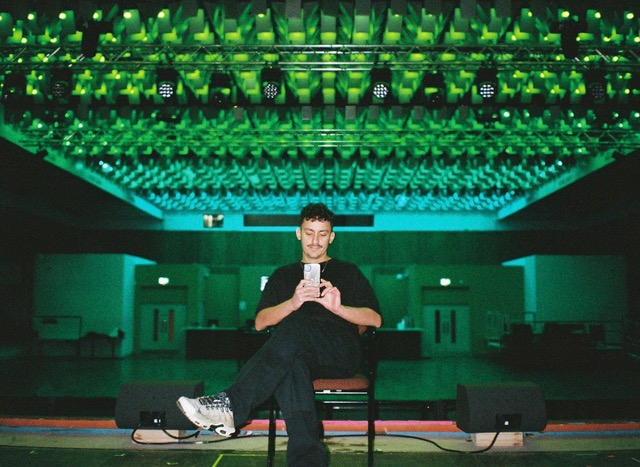
‘Rock and a Calm Place’ has quite a philosophical background, inspired by Albert Camus and The Myth of Sisyphus. Is that right?
I did a lot of philosophy reading in my 20s and was really into Camus – [his book] The Fall especially. I love that sort of thing. I’m not an existentialist or a nihilist. I think I’m an absurdist, which is where I feel like everything’s kind of pointless, but then you should try and enjoy yourself while you’re here. I believe, personally, that you’re only here once, and that’s the way we should live by. And, to return to The Streets, my favourite record is Everything Is Borrowed.
“I came to this world with nothing, and I leave with nothing but love…”
I absolutely loved that record because [Mike Skinner] challenged himself; he was right at the peak of The Streets and could have talked about AirMax and Red Stripe again, but he didn’t. There was a depth there. I do like a bit of ambiguity in a song as well. I think you lead the listener part of the way there, and then you’ve got to let them make their own mind up. It’s the same with good films and books; ambiguous endings are the ones that stick with you.
This might be a forced link, but you’re a teacher, and you make music. Do you ever see music as a form of teaching or getting a message out?
I reckon that’s quite a shout. I’m always quite conscious of, ‘What’s the message?’ or ‘What do I want people to go away feeling?’ I do want it to be uplifting. My live show’s silly in places: we do a Sugababes cover. I want people to leave with something, whatever that is.
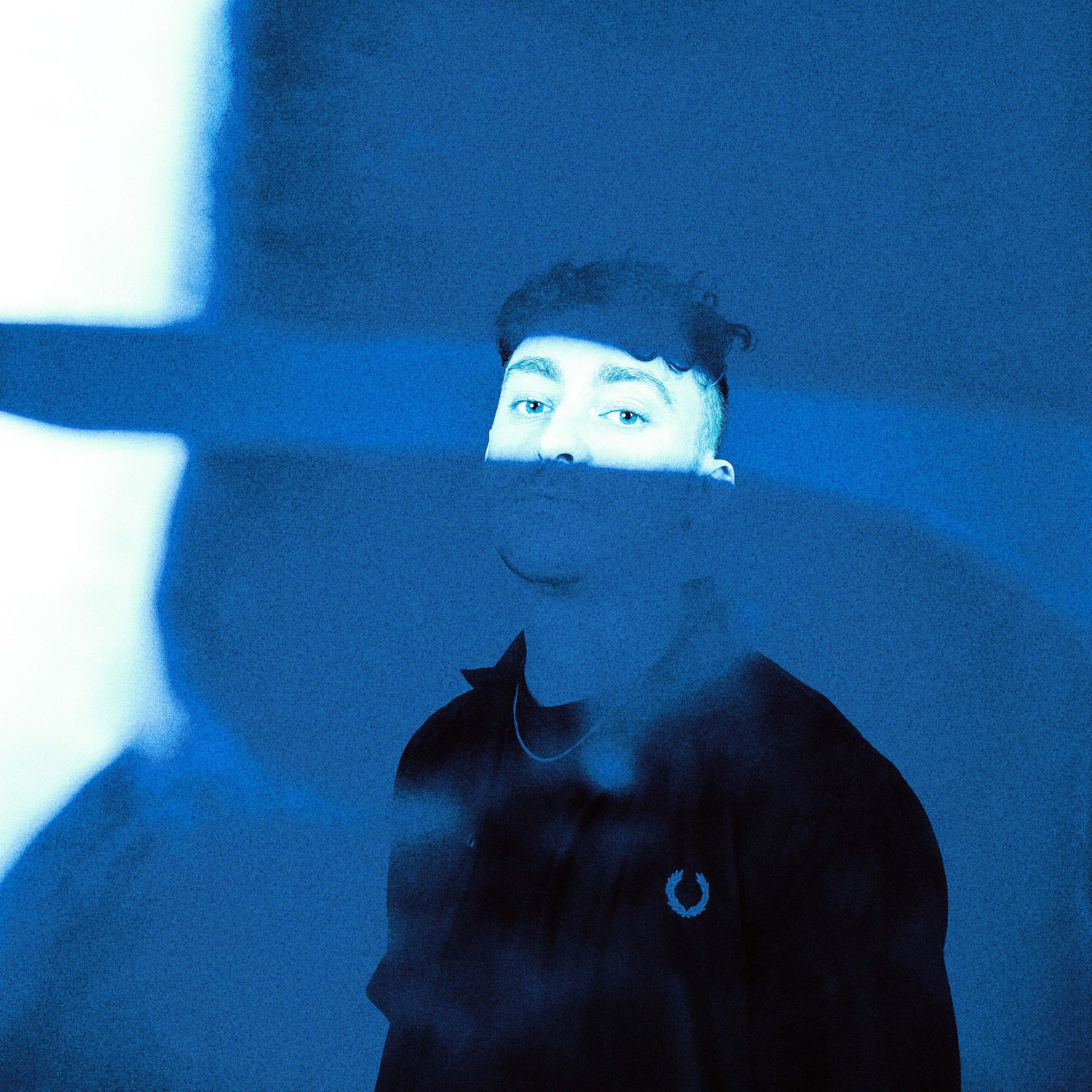
So how are you finding the live shows now – and the upscaling of it, in particular?
That’s the best bit. The live show is the reward for me. When I get to that, it’s so fun. My brother plays guitar in the band, my mate Tom plays bass, and Robin helps with production and plays keys. They’re three introverts, and one of the best bits is watching them learn to love it, like showing off.
And you second-headlined Camp Bestival last year. How special a moment was that for you?
Yeah, that was terrifying, to be fair. Biggup Rob Da Bank. He listened to Lauren [Laverne] on [BBC Radio] 6. He gave me some good advice and said he’d love to have me on at Camp Bestival. There was no slot for ages, but Reel Big Fish dropped out, and they were second to headline before Self Esteem.
It was weird because I was hanging from the night before; Robin didn’t even have a proper keyboard stand. It was like some tool bench his dad had lent him. But we went on and did it. We had enough people there to make it feel good. Then watching Self Esteem – a bit from the side of the stage, I went into the crowd – and as soon as she played ‘I Do This All The Time’, I burst into tears.
Because it felt like such a moment for you?
I think so. I’m quite an emotional person anyway. That’s my job; I’m a professional over-sharer. But I’d been doing so much work and ensuring everyone, and the band were okay. I could tell everyone was nervous; we didn’t even know how it sounded in a big tent, and we’d never played anything like that. So it was a lot of relief, and then that song is beautiful anyway. I think it just having that quiet moment to myself. I just burst into tears.
And you’ve got your EP Poems To Dance now. How are you feeling about that being out in the world?
It’s been done for a while because it would be out in October. It’s everything I worked on in 2022, really. I’m really happy to have it out. Again, my vocals or lyrics tie it together, but it’s six different genres, so it’s a bit of a risk. There’s a bit of drum n’ bass, a bit of garage, indie, and hip-hop. It’s all over the place, but it works as a project.
What do you want people to take away from it about you as an artist?
I guess those soundbites and little mantras to live by, those little quotes. All the way through, it’s optimistic – even the slower numbers on there. I guess nostalgic is a word that’s been bandied about for it.

